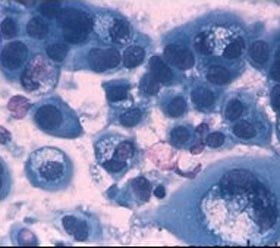Cancer, a formidable health challenge in India, claims lakhs of lives annually, impacting families across the nation. While advancements in treatment offer hope, a potent weapon against this disease lies in prevention. Modifiable lifestyle factors significantly contribute to cancer development, offering opportunities to mitigate risks through conscious choices. By understanding this link and adopting healthier habits, individuals can substantially reduce their susceptibility to various cancers and enhance their overall well-being.
A significant portion of cancer cases in India can be attributed to modifiable risk factors, including unhealthy diets, lack of physical activity, tobacco and excessive alcohol use, and overexposure to the sun. The Indian Council of Medical Research (ICMR) reports over 1.4 million new cancer cases annually, highlighting the substantial role lifestyle plays. Obesity, a growing concern in urban India, is linked to cancers such as breast, colorectal, and endometrial cancers. Addressing these lifestyle factors not only reduces cancer risk but also mitigates the likelihood of developing other chronic diseases like diabetes and heart disease. The encouraging news is that even small, sustainable changes can yield substantial long-term benefits.
Diet plays a pivotal role in cancer prevention. Traditional Indian cuisine, rich in fruits, vegetables, whole grains (like millets, brown rice, and whole wheat), and pulses, offers an abundance of antioxidants and nutrients that protect cells from damage. Incorporating a variety of colorful produce, such as mangoes known for their cancer-fighting properties and leafy greens like spinach that may inhibit tumor growth, is crucial. Conversely, processed foods, high-fat meats, and sugary carbonated drinks like sweetened lassi or colas are associated with increased risks of colorectal and other cancers, and should be limited. Maintaining a healthy weight through balanced eating is a powerful strategy for cancer risk reduction. Simple swaps, like choosing buttermilk or fresh fruit juice over sugary beverages and adding a vegetable dish to meals, can make a significant difference. Given India’s diverse culinary landscape, the focus should be on progress, not perfection. Consulting a dietitian can help tailor a plan that aligns with individual dietary preferences and regional cuisines.
Physical inactivity, particularly prevalent among young professionals in urban India, contributes to a higher cancer risk. Regular physical activity helps maintain a healthy weight, strengthens the immune system, and lowers the risk of several cancers, including breast, colon, and endometrial cancer. Experts recommend at least 150 minutes of moderate-intensity activity per week, which can include brisk walking, yoga, or cycling. Every bit of movement counts, whether it’s walking to the market, practicing Surya Namaskar, or participating in a community dance class like Bhangra. Even short bursts of activity throughout the day accumulate to provide significant health benefits. Exercise also elevates mood and energy levels, making it easier to maintain other healthy habits. However, consulting a doctor before starting or intensifying an exercise regimen is advisable, particularly for individuals with pre-existing health conditions.
Eliminating harmful substances like tobacco and limiting alcohol consumption are crucial steps in cancer prevention. Tobacco use, in any form, significantly increases the risk of oral and lung cancers in India. Quitting tobacco at any age drastically reduces this risk, and the body begins to heal over time. Excessive alcohol consumption elevates the risk of cancers affecting the mouth, liver, breast, and digestive tract. Moderation is key if alcohol is consumed, and complete abstinence is recommended for those at higher risk. Minimizing exposure to environmental hazards like industrial smoke, asbestos, pesticides, and prolonged air pollution, especially in high-risk areas of major Indian cities, is also essential. Protective measures such as wearing masks, choosing organic produce when feasible, and ensuring proper ventilation at home can mitigate these risks. Protecting skin from the sun is equally important in India’s climate. Using broad-spectrum sunscreen with an SPF of 30 or higher, wearing protective clothing, and avoiding direct sun exposure during peak hours are effective strategies.
Regular screenings and vaccinations are essential components of a comprehensive cancer prevention strategy. Early detection of cancer significantly improves treatment outcomes. Screening programs for various cancers, such as mammograms, Pap smears, oral cancer checks, and colonoscopies, are becoming increasingly accessible in urban and semi-urban areas of India. Annual health check-ups are a valuable investment in long-term health. Vaccinations against certain viruses, like HPV and Hepatitis B, which are linked to cervical and liver cancers respectively, offer proven preventative benefits, particularly for younger age groups. While lifestyle changes form the cornerstone of cancer prevention, combining them with routine screenings and vaccinations maximizes protection. Cancer prevention is an ongoing commitment to well-being, not a one-time effort. Every healthy choice made today contributes to a healthier, cancer-resistant future.














